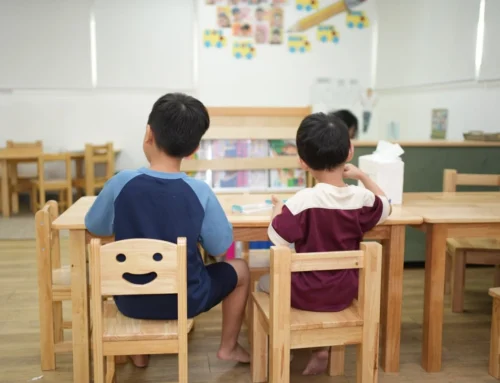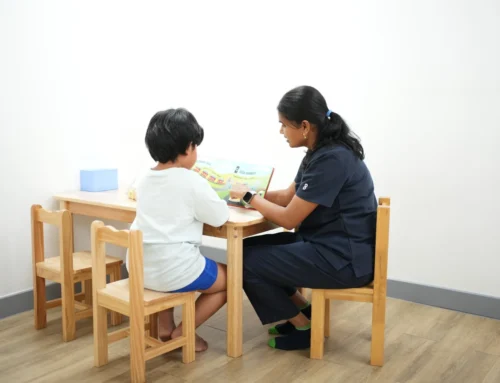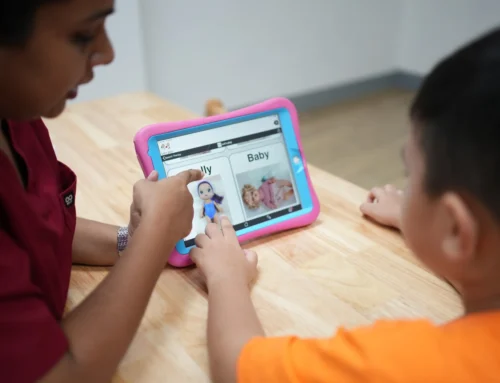Adolescence can be a confusing and emotionally charged time — especially for teenagers who struggle with social communication challenges. These difficulties can affect how they make friends, express feelings, or participate in group discussions. Fortunately, speech therapy for teenagers provides evidence-based support that helps young people improve their communication skills and confidence in both academic and social settings.
In Phnom Penh, centers like OrbRom Center are leading the way by offering personalized programs that address the unique needs of teens with social communication difficulties, bridging the gap between therapy, education, and real-world communication.
Understanding Social Communication Challenges in Teenagers
Social communication refers to how we use language in everyday interactions — understanding tone, interpreting body language, taking turns in conversation, and choosing words appropriate for the situation. Teenagers with challenges in this area may experience:
-
Difficulty maintaining conversations or staying on topic
-
Challenges interpreting jokes, sarcasm, or idioms
-
Trouble understanding social cues such as facial expressions or gestures
-
Anxiety or avoidance in group settings
-
Misunderstandings with teachers, peers, and even family members
These challenges are often seen in individuals with Autism Spectrum Disorder (ASD), Social (Pragmatic) Communication Disorder, or other developmental conditions. Left unaddressed, they can impact relationships, school performance, and emotional well-being.
How Speech Therapy Supports Teen Communication Skills
Speech therapy for teenagers goes beyond pronunciation and vocabulary — it focuses on pragmatic language and social interaction. At OrbRom Center, therapists use structured yet engaging approaches to build essential communication skills that prepare teens for school, friendships, and future employment.
1. Role-Play and Real-Life Scenarios
Therapists simulate real social situations — such as ordering food, participating in group projects, or handling disagreements — allowing teens to practice social rules and self-expression safely.
2. Social Thinking Programs
These programs help teens understand how their behavior affects others and how to read the “hidden rules” of communication. This builds empathy, flexibility, and self-awareness.
3. Nonverbal Communication Skills
Understanding eye contact, gestures, and tone is crucial for social success. Speech therapy activities help teens decode these cues while learning to use them effectively.
4. Self-Advocacy and Confidence Building
Through coaching and feedback, therapists guide teens in expressing their needs, setting personal goals, and handling peer pressure or misunderstandings assertively.
These evidence-based interventions are integrated into group sessions or one-on-one programs, depending on the teen’s goals and comfort level.
The Importance of Early Intervention — Even in the Teen Years
While most people associate speech therapy with younger children, teenagers benefit just as much — especially when social demands increase in middle and high school. Addressing these challenges early helps prevent emotional distress, school withdrawal, or isolation.
OrbRom Center emphasizes individualized assessment and therapy, ensuring that every teenager’s strengths and challenges are understood before creating a personalized plan. Using a mix of language assessments and social communication evaluations (learn more here), therapists can identify underlying difficulties that may not be immediately visible in academic performance.
Building Communication Confidence Beyond the Therapy Room
One of the key goals of speech therapy is generalization — helping teens use their new skills in everyday life. This involves close collaboration between therapists, parents, and teachers.
At school: Teachers can reinforce social communication strategies in group projects and class discussions. For instance, setting clear conversation rules or using visual cues can help teens stay engaged and confident.
At home: Parents can model communication by encouraging open dialogue and providing feedback gently. Regular family discussions — even about simple topics — offer safe opportunities to practice.
In the community: Participating in clubs, volunteering, or sports can give teenagers meaningful ways to connect socially while applying what they’ve learned in therapy.
These holistic supports reflect the family-centered approach practiced at OrbRom, where every strategy is designed to build independence and social-emotional resilience.
Speech Therapy in Phnom Penh: A Growing Need
In Cambodia, awareness about speech and language challenges in teenagers is steadily increasing. More international and local schools in Phnom Penh are recognizing the importance of on-site or partnership-based speech therapy programs. Centers like OrbRom Center collaborate with schools to create inclusive learning environments that nurture not only academic success but also communication growth.
This shift reflects a broader commitment to supporting neurodiverse learners — ensuring that all students, regardless of their challenges, can thrive socially and emotionally.
Helping Teens Find Their Voice
Social communication skills play a vital role in shaping a teenager’s confidence, relationships, and academic journey. With the right support, teens who once struggled to connect can develop strong, authentic voices that help them succeed in school and life.
If your teen is facing social communication challenges, don’t wait. Explore OrbRom Center’s Speech Therapy Services to learn how individualized programs in Phnom Penh can help your child express themselves with confidence and clarity.
We are the only Preschool specialized on children with special needs in PhnomPenh.
- Internationally qualified teachers
- Cambodia’s largest sensory room
- Outdoor swimming pool
- Covered outdoor playground
📞 Phone: 077.455.993
Telegram Link: https://t.me/OrbRom





